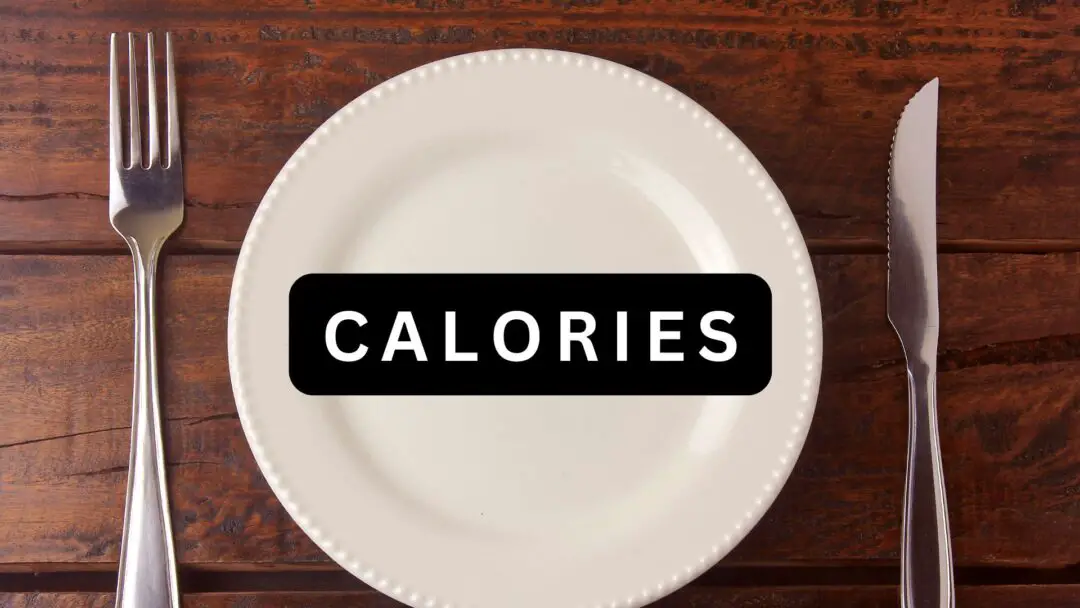Calories is probably among the first thing that you consider when you start to get a little serious about your fit peak life. Mostly the concern is about losing weight but calories hold far greater significance than that. The quality and quantity of calorie intake directly influence how you thrive and perform. Let’s discuss more about this.(Disclaimer)
Table of Contents
What is a Calorie?
A calorie is a unit of energy. It is the amount of energy stored in a substance. In the fitness world, calories are measured by how much energy a food hold. However, just reading labels or estimating calories by portion size won’t help, I’ve lost many days and hours figuring out why my results were slow or non existent. Here is how calories are categorized :
- Gross Energy: The total energy in a food. The food may be raw or cooked.
- Metabolizable Energy (ME): The amount of energy our body can use after digestion. And digestion is not perfect to absorb all the calories.
This is the reason why some food may make you feel sluggish and some make you feel energetic. For example fats have higher ME than carbohydrates. ME is different for every person as their digestive system is different. You might be thinking that I am advocating fats, No. Please don’t confuse ME with metabolism.
ME provides the fuel for metabolic processes. The body uses the energy from ME to carry out various metabolic functions like building, repairing, discarding waste etc. Metabolism is different for everyone. It depends on age, genetics, physical activity.
Use of Calories
Like I’ve discussed calories are needed for metabolic functions. Our bodies constantly burn these calories for various functions. Below are a few ways our bodies utilize calories.
- Basal Metabolic Rate(BMR): The energy required for basic functions like breathing, circulating blood, maintaining body temperature and much more. BMR indicates basic amount of calories needed by our bodies in a day. Again, this depends on age, sex, physical activity etc.
- Physical Activity: This is what you do besides resting, I mean this is where calories besides BMR are utilized.
- Thermogenic Effect of Food(TEF): We normally don’t pay much attention to this. This is the amount of calories burned to digest and absorb the food. Yes, eating and digesting also costs energy. In other words TEF is required to produce ME(Metabolizable Energy).
It’s Not One-Size-Fits-All
We all have seen few people who eat whatever they want and how much they want and don’t gain weight. I, on the other hand, gain weight very easily. It turns out calories are individual specific. Some people have high metabolic rate so they need more calories than average.
Typically women need around 1600-1800 Kcal a day and men need 1800-2200 Kcal a day. Calorie requirement depend on one’s age, gender, height, BMR, physical activity, muscle mass etc. There are many platforms where you can calculate the number of calories needed to loose, maintain or gain weight.
Calorie Intake for Weight Goals
Besides your BMR, every calorie counts. Let’s see how

- Weight Loss: You have to be in calorie deficit for gradual weight loss meaning you have to burn more than you consume. Sounds simple but many people such as my old self go on hunger strike to consume less. See, burning calories and consuming less calories is different. You should anyhow eat as per your BMR for proper bodily functions and health. Eating any less may lead to malnutrition, brain fog, muscle loss, fatigue or worse. Calories deficit is calculated after consuming your required calories based on your BMR, say 1800 Kcal. Now suppose you go for a run or do some workout and let’s say you burn 500 Kcal then you are 500 Kcal in Deficit. 500 Kcal is roughly equal to 50 gms (0.11 lbs) of fat. And if you have eaten 2000 Kcal then for similar physical activity you will be 300 Kcal in deficit.
- Weight Maintenance: Account for your calories burned during a physical activity and add it to your BMR. That is your weight maintenance calorie.
- Weight Gain: It’s very easy!! I can do it in my sleep haha. Jokes aside, Eat more than you burn + BMR. But be goal oriented because many diseases are linked with obesity.
Calorie Quality vs. Quantity
Junk foods are tempting, but they pack bunch of calories for their small portion size. They don’t carry nutrients besides saturated fats and carbohydrates. With the little amount of calories that I have to spare for a day I want to be full and eat a nutrients packed meal. This is why quality matters over quantity.

- Empty Calories: Sugary drinks, processed snacks, alcohol are among the food and drinks which don’t offer much for health but fill your calorie meter very fast.
- Nutrient-Dense Calories: Foods like vegetables, fruits, lean proteins, and whole grains offer vitamins, minerals, and fiber. These are fulfilling and have low calorie per portion.
Macronutrients and Caloric Values
Understanding macronutrients helped me balance my meals better:
- Carbohydrates: 4 calories/gram. Carbohydrates are broken down into glucose and stored in our bodies. Glucose is further broken down to produce energy as needed.
- Proteins: 4 calories/gram. Essential for muscle repair and growth.
- Fats: 9 calories/gram. Long-lasting energy and critical for hormone production.
Balance, Quality, and Individuality
Calories are not the enemy—they’re a tool. By focusing on balance and quality, I’ve found a sustainable way to fuel my body and support my goals. Remember, your calorie needs are unique to you. Start small, track your intake, and make adjustments as needed. Your body will thank you and you will always be ready for a new day.
- More Than Fresh: The Unexpected Nutritional Punch Of Frozen Vegetables – April 18, 2025
- Beyond The Diet: My Unexpected Discoveries With Intermittent Fasting – January 11, 2025
- Shilajit: A Deep Dive Into The Himalayan Elixir – January 5, 2025

Leave a Reply